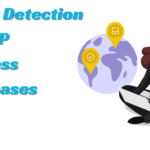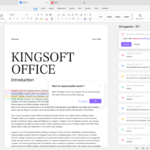How Do Medical Interpreters Work?
The need and importance of medical interpretation can not be denied these days. Every hospital, health center, and medical clinic requires medical interpretation. Also, the value of the right language and its access in the healthcare center is extremely vital. As per the reports only in the USA unlimited cases are reported time and again in the hospitals and healthcare centers with patients who have limited English proficiency and seek medical services. The limited proficiency in one language paves the way for the hiring of interpreters. As medical field cannot process effectively without medical interpretation.
The interpretation in healthcare is not all about the communication between patients and healthcare providers. It is also significant for assistance during the patient’s stay and journey in a hospital. He might need interpreters during his admission, examination, and consultation with his physicians. The medical procedures between patients and medical providers often get extensive and complex. So, it can get a problem for the patient with limited proficiency in the language.
Medical translation overall is a challenging domain. Even the devices and products may also require translation. Companies often seek professional medical device translation services too to launch their medical equipment in other countries and regions. Other than communication and interpretation the medical interpreter can also help with the discomfort and anxiety that patients face post-diagnosis. It gets extremely crucial to pacify the patient in such a condition or else he can get panicked.
Medical interpretation services, thus often bring relief to sick people. It helps in making it better and also ensures that there are no misunderstandings and that the information provided is clear. Medical interpreters in such cases help as an active agent between patients and health providers. So a medical interpreter is actually doing a lot for both parties. Though he gets paid for his services however his role can not be overlooked. Not having a medical interpreter on your side during the diagnosis or treatment can create panic and havoc for the hospital staff as well as the patients and their families.
Things that interpreters are performing in a nutshell
Setting up the stage
A lot of healthcare facilities have started to hire medical interpreters now. However, they are not much familiar with language access programs and also don’t have an exact idea about how medical interpretation works. Professional medical interpretation services require a lot. The interpreter should be setting the stage by clearing out certain factors. He should clear the air about the expectations of the patients and his caregivers.
Additionally, he should focus on confidentiality, completeness, and accurate content. He should also be able to address the discomfort coming from either side. The interpreter should facilitate both parties as maximum as he can. He can also sit with the patient before the actual session to get an idea of the patient’s linguistic style so that the interpreter doesn’t face any difficulty while interpreting for him.
Interpreting
This is the main task of an interpreter. He should make sure he transmits the information accurately. He can ask the patient or his physician to repeat if he fails to understand at once. As he needs to understand the task dully. He should listen to the message in the original language vigilantly and should translate it keeping all the main information intact while translating it to the target language. Medical interpretation also requires knowledge of a lot of medical products and stuff.
If any party talks about the medical devices or a patient needs one the interpreter should have basic knowledge of that equipment. He can seek medical device translation services from professionals with the help of hospital staff. He needs to be clear and sorted about the information that the patient provides before he transmits it to the physician and doctor.
Managing communication flow
The task of interpretation can get slow, boring, and dry. It also often leads to awkward situations. Therefore, the interpreter has to make sure that he manages the communication flow well. It is inevitable to guarantee the accuracy and context of the information. Also, he should not miscommunicate or feel lost at any stage of interpretation.
He can have a tendency to the interpersonal dynamics of either the patient or the provider during the session and he should be open to it. If he needs help with the medical equipment or if he has to explain to the patient how certain devices may work he should take help from the relevant staff. Medical device translation companies can also be taken aboard to support the process.
Managing three-way correspondence
The medical interpreter bridges the language gap and works as the facilitator between the provider and the patient. Therefore, it creates a situation where there could be a tendency to form an alliance. This situation can compel the doctors and patients to direct their remarks to the interpreter. During such cases, the interpreters can always encourage them to have direct communication. It is naturally understandable that caregivers often take interpreter as their extension despite the fact that he is an individual with his own obligations and values.
Likewise, the patient also feels inclined towards the interpreter because he understands his language and culture. However, rather than alleging the interpreters to be each other’s support they should understand that he is there to facilitate them and manage the communication which is for their own good.
Assisting in the clinical closure
Once the medical checkup is over and the patient and his caregiver understand each other well, the interpreter should further ask the healthcare provider to have the patient follow up and the instructions he needs to follow post his treatment. The interpreter can help him to understand the follow-up plan and the right way to take his medicine. He can also ensure that the patient understands the whole procedure, stays connected, and reverts in case of any uneasiness or medical condition. Moreover, an interpreter with experience in multiple domains of the medical field can help him reap more benefits. Such as the demand for the best biotechnology translation services and interpretation is getting more than ever.
Final words
A medical interpreter performs a hectic task where he connects the patient and caregiver on the same page. He has to cope with the challenges so he needs to stay calm, make sure he sets up a good stage for interpretation and manages the communication between both parties well. Also, he helps the patient with his follow-up plan and medicine dosages post-treatment.


















